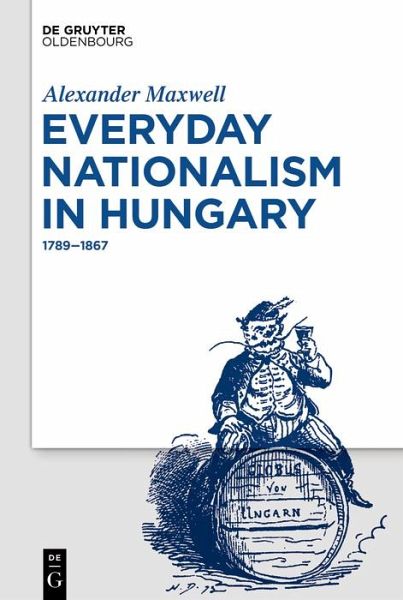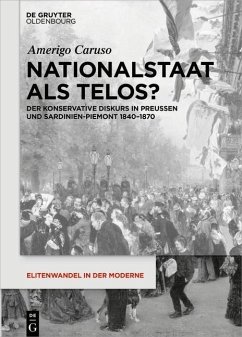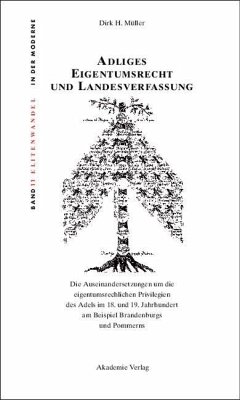
Everyday Nationalism in Hungary (eBook, PDF)
1789 - 1867

PAYBACK Punkte
45 °P sammeln!
This book examines Hungarian nationalism through everyday practices that will strike most readers as things that seem an unlikely venue for national politics. Separate chapters examine nationalized tobacco, nationalized wine, nationalized moustaches, nationalized sexuality, and nationalized clothing. These practices had other economic, social or gendered meanings: moustaches were associated with manliness, wine with aristocracy, and so forth. The nationalization of everyday practices thus sheds light on how patriots imagined the nation's economic, social, and gender composition.Nineteenth-cent...
This book examines Hungarian nationalism through everyday practices that will strike most readers as things that seem an unlikely venue for national politics. Separate chapters examine nationalized tobacco, nationalized wine, nationalized moustaches, nationalized sexuality, and nationalized clothing. These practices had other economic, social or gendered meanings: moustaches were associated with manliness, wine with aristocracy, and so forth. The nationalization of everyday practices thus sheds light on how patriots imagined the nation's economic, social, and gender composition.
Nineteenth-century Hungary thus serves as the case study in the politics of "everyday nationalism." The book discusses several prominent names in Hungarian history, but in unfamiliar contexts. The book also engages with theoretical debates on nationalism, discussing several key theorists. Various chapters specifically examine how historical actors imagine relationship between the nation and the state, paying particular attention Rogers Brubaker's constructivist approach to nationalism without groups, Michael Billig's notion of 'banal nationalism,' Carole Pateman's ideas about the nation as a 'national brotherhood', and Tara Zahra's notion of 'national indifference.'
Nineteenth-century Hungary thus serves as the case study in the politics of "everyday nationalism." The book discusses several prominent names in Hungarian history, but in unfamiliar contexts. The book also engages with theoretical debates on nationalism, discussing several key theorists. Various chapters specifically examine how historical actors imagine relationship between the nation and the state, paying particular attention Rogers Brubaker's constructivist approach to nationalism without groups, Michael Billig's notion of 'banal nationalism,' Carole Pateman's ideas about the nation as a 'national brotherhood', and Tara Zahra's notion of 'national indifference.'
Dieser Download kann aus rechtlichen Gründen nur mit Rechnungsadresse in A, B, BG, CY, CZ, D, DK, EW, E, FIN, F, GR, HR, H, IRL, I, LT, L, LR, M, NL, PL, P, R, S, SLO, SK ausgeliefert werden.













